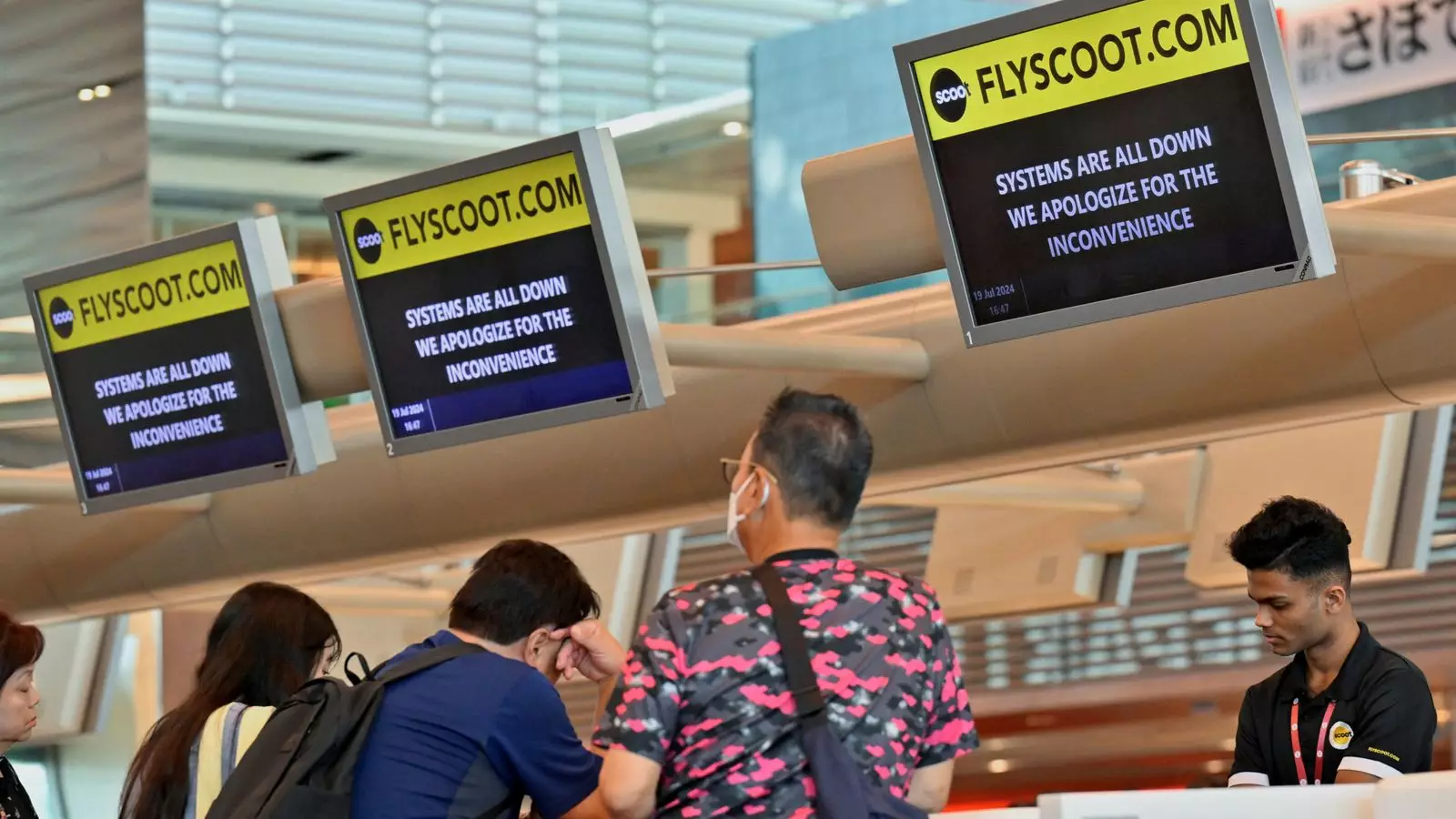The recent global IT outage has wreaked havoc on transport networks around the world. Major airports, including London Heathrow, Singapore’s Changi Airport, Amsterdam’s Schipol Airport, and Melbourne Airport in Australia, have all experienced disruptions in check-ins and security processes due to the shutdown of Microsoft-run systems. The repercussions of this outage have been substantial, with 1,167 flights cancelled globally as of 11 am on Friday and that number expected to increase, according to data from aviation analysts Cirium.
In the United States, leading airlines like American Airlines, Delta Airlines, and United Airlines were compelled to ground all flights on Friday morning due to communication issues. Meanwhile, in Europe, passengers at Amsterdam’s Schipol Airport faced average delays of 78 minutes, causing widespread inconvenience. The reliance on manual systems has become a common theme in affected airports, with Belfast International Airport resorting to whiteboards for flight information dissemination.
Even after resolving technical glitches, several flights scheduled for later in the day had to be cancelled, leaving passengers stranded and frustrated. The lack of real-time updates and poor communication systems further exacerbated the chaos, with individuals like Anna, a passenger heading to Split in Croatia, expressing her dismay over the lack of information available at the terminal. Stories of long queues, flight cancellations, and overall disorder have painted a grim picture of the impact of the IT outage on airport operations worldwide.
Challenges in Train Operations
The railway sector has also felt the repercussions of the global IT outage, with 14 companies under the Rail Delivery Group facing disruptions in their operations. From Avanti to TransPennine Express, key train operators have been unable to access critical information, leading to potential train cancellations at short notice. Real-time customer information platforms and ticket machines at various stations have also been affected, compounding the challenges faced by commuters.
National Rail acknowledged the widespread impact of the IT outage, describing it as causing issues “across the entire network.” However, efforts have been made to mitigate the disruptions, with affected customers permitted to utilize their tickets on alternative services like the London Underground and London buses at no extra cost. Despite the challenges, Network Rail reassured passengers that the “vast majority” of the rail network remains operational.
The chaos brought about by the global IT outage has underscored the vulnerabilities of transport networks in the face of technological failures. As passenger safety and convenience hang in the balance, authorities and industry stakeholders must work swiftly to address the root causes of such disruptions and implement robust contingency plans to prevent similar incidents in the future.


Leave a Reply